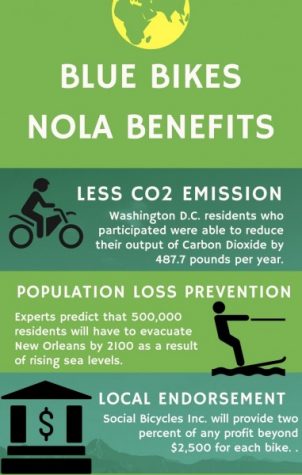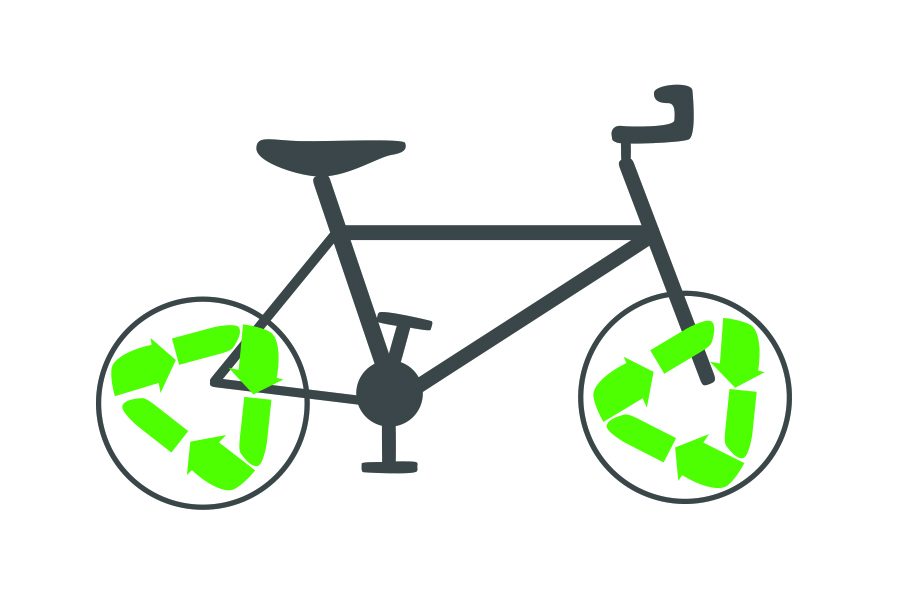New NOLA bike share program promises plethora of benefits

Mayor Mitch Landrieu’s office announced that New Orleans’s new bike-share program will start next month, achieving a goal he has been vocal about since 2010. By actively involving the population of New Orleans in the development of this project, planners are creating an opportunity for residents to improve the health of the planet and the well-being of their community. Tulane students will also be able to take advantage of this program and help contribute to the environmental health of the city.
When the implementation is finished, there will be 90 pick-up and drop-off locations with 900 bicycles available to rent. Stations will be dispersed throughout heavily-trafficked areas of the city, including the French Quarter, City Park, Garden District and Bywater. Bikes will cost $8 per hour to rent. Monthly passes will cost $15 and allow people to ride for up to an hour per day with an $8 fee for every additional hour. Residents who qualify for public assistance will receive a special discounted annual pass for $20.
The @BlueBikesNOLA final bike share stations map has been released! Where will you ride?? https://t.co/gJhuFdFhyw
— Bike Easy (@BikeEasy) November 10, 2017
Social Bicycles, Inc., has been involved with the New Orleans community throughout the planning process, reflecting a genuine effort to provide services that will meet the needs of New Orleans residents. Through online surveys and in-person workshops, it gathered input from the public about where the stations should be located. This focus on the needs of New Orleans residents is a positive sign that the program will benefit a broad swath of the population and will actually be used by a significant number of people.
Bike-share programs have been shown to provide a number of benefits. They can provide people who cannot afford cars with a cheap, convenient method of transportation, allowing them to access new areas of the city while increasing commerce. Cycling is also an excellent form of cardiovascular exercise, and encouraging cycling can improve the public health of urban areas.
These programs can also reduce air pollution. Studies show that a four-mile bike ride prevents 15 pounds of air pollution from being emitted by burning gasoline. In Washington, D.C., those that chose to use the program avoided emitting 487.7 pounds of carbon dioxide per year.
Blue Bikes will be a great way for you to get to and from work! pic.twitter.com/61Ky45DTEG
— BlueBikesNOLA (@BlueBikesNOLA) November 10, 2017
Money made from the program will also go toward environmental initiatives. Social Bicycles, Inc., will give 2 percent of any profit beyond the first $2,500 for each bike. This money will then fund the creation of more bike- and pedestrian-friendly infrastructure. By doing so, the bike-share project can promote other environmentally-friendly projects without placing a large financial burden on the city.
Reducing carbon emissions is especially vital to the future of New Orleans, a city that is extremely susceptible to the consequences of climate change. Experts predict that 500,000 people will have to evacuate the New Orleans area by 2100 due to rising sea levels, representing more than one-third of the current population.
 Carrigan English| Staff Artist
Carrigan English| Staff Artist
The city of New Orleans has a responsibility to its citizens to do everything in its power to minimize its contribution to global climate change. Though the bike-share program on its own is not enough to save the city from the future ramifications of climate change, it is a step in the right direction. This program has the potential to engage the general population in efforts to help the environment, and Tulane students should be ready to take part.
This is an opinion article and does not reflect the views of The Tulane Hullabaloo. Madeline is a sophomore at Newcomb-Tulane College. She can be reached at [email protected].
Your donation will support the student journalists of Tulane University. Your contribution will allow us to purchase equipment and cover our annual website hosting costs.

















Leave a Comment